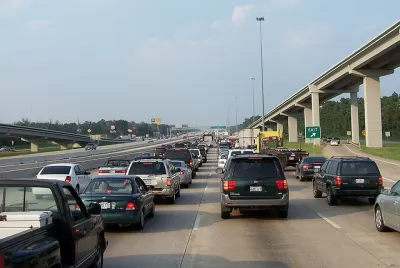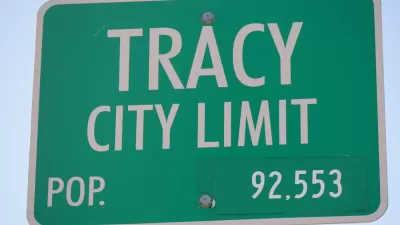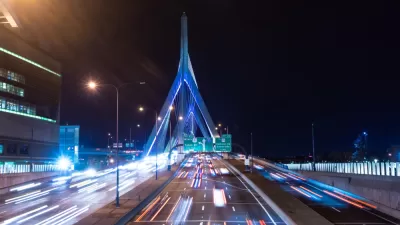The number of "super commuters"—people who commute for over 90 minutes—is still a relatively small percentage of the country, but it's a number that's growing quickly. What does that mean about the economy?

"The number of commuters who travel 90 minutes or more to get to work increased sharply between 2010 and 2015," reports Tim Henderson.
In all but 10 states, the number of “super commuters” increased over the period, and in California, Hawaii, Massachusetts, North Dakota and Rhode Island, it grew by more than 40 percent, according to census data. The growth came amid an overall increase in the number of commuters as the economy improved, but the increase in the number of people with the longest rides, 23 percent, was almost three times the increase in the number of those with shorter commutes, close to 8 percent.
For some insight into the data, Henderson speaks with Mitchell Moss, an urban policy professor at New York University’s Rudin Center for Transportation Policy and Management, Panos Prevedouros, a traffic engineering professor at the University of Hawaii, and David Kack, a program manager for the Western Transportation Institute at Montana State University. Among the culprits for the book in super commutes identified by these sources: the high cost of housing near urban job centers, the rise of telecommuting, and the slow, tenuous recovery from the Great Recession.
FULL STORY: In Most States, a Spike in 'Super Commutes' Over 90 Minutes Long

Alabama: Trump Terminates Settlements for Black Communities Harmed By Raw Sewage
Trump deemed the landmark civil rights agreement “illegal DEI and environmental justice policy.”

Study: Maui’s Plan to Convert Vacation Rentals to Long-Term Housing Could Cause Nearly $1 Billion Economic Loss
The plan would reduce visitor accommodation by 25% resulting in 1,900 jobs lost.

Why Should We Subsidize Public Transportation?
Many public transit agencies face financial stress due to rising costs, declining fare revenue, and declining subsidies. Transit advocates must provide a strong business case for increasing public transit funding.

Paris Bike Boom Leads to Steep Drop in Air Pollution
The French city’s air quality has improved dramatically in the past 20 years, coinciding with a growth in cycling.

Why Housing Costs More to Build in California Than in Texas
Hard costs like labor and materials combined with ‘soft’ costs such as permitting make building in the San Francisco Bay Area almost three times as costly as in Texas cities.

San Diego County Sees a Rise in Urban Coyotes
San Diego County experiences a rise in urban coyotes, as sightings become prevalent throughout its urban neighbourhoods and surrounding areas.
Urban Design for Planners 1: Software Tools
This six-course series explores essential urban design concepts using open source software and equips planners with the tools they need to participate fully in the urban design process.
Planning for Universal Design
Learn the tools for implementing Universal Design in planning regulations.
Smith Gee Studio
Alamo Area Metropolitan Planning Organization
City of Santa Clarita
Institute for Housing and Urban Development Studies (IHS)
City of Grandview
Harvard GSD Executive Education
Toledo-Lucas County Plan Commissions
Salt Lake City
NYU Wagner Graduate School of Public Service





























